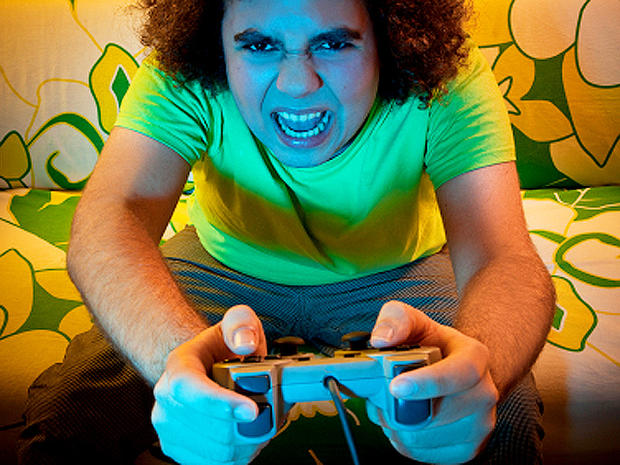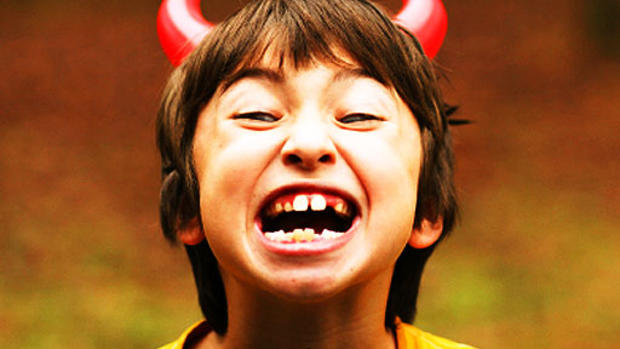Profanity-laced TV, video games tied to cursing, aggression
(CBS) What makes a kid lash out at others? Profanity-laced television and video games might deserve some of the blame, a new study suggests.
For the study - published in the Oct. 17 issue of Pediatrics - researchers at Brigham and Young looked at 223 Midwestern middle-schoolers, asking what their favorite shows and video games were, and how often they cursed. The researchers found that students who played video games and watched TV filled with profanity were more likely to use it themselves - and in turn - lash out towards other students.
"This research shows that profanity is not harmless," Brad Bushman, a mass communications professor at Ohio State University who was not involved in the study, said in a written statement. "Children exposed to profanity in the media think that such language is 'normal,' which may reduce their inhibitions about using profanity themselves."
Bushman said that parents, teachers, and pediatricians should be aware of profanity's effects, since these kids aren't just rude - they're more likely to harm others.
Is television really turning these kids into foul-mouthed brats?
"Profanity is kind of like a stepping stone," study author Dr. Sarah Coyne, family professor at Brigham Young University in Provo, Utah, said in a written statement. "You don't go to a movie, hear a bad word, and then go shoot somebody. But when youth both hear and then try profanity out for themselves it can start a downward slide toward more aggressive behavior."
The study found aggressive kids were more likely to hit, kick, and punch others, or engage in non-physical aggressive behavior like gossiping and spreading rumors about someone. The researchers also suspect the study's findings apply to adults as well.
What's the take-home message? The authors think parents should pay more attention to those TV-rating boxes in the corner of the screen to see if a show will have foul language.
"This study shows that it does matter," Coyne - who herself isn't a swearer herself due to BYU's "Honor Code" that forbids foul-language among faculty and students - told HealthDay. "It matters where they hear it, and parents should maybe be a little more vigilant about profanity exposure in the media."
Not everyone was buying the research.
"The authors assume that words 'harm' children, and they need to be 'protected' from words. This is an assumption without basis," Dr. Timothy Jay, a professor of psychology from Massachusetts College of Liberal Arts, told Fox News. Jay said there's research that show the words on television - both good and bad - might benefit kids. "The authors make no case for profanity being beneficial, as in humor elicitation, or social bonding, or as a coping mechanism, or as a relief from pain," he said.
What do you think? Do you agree that foul-mouthed TV is making kids aggressive?

